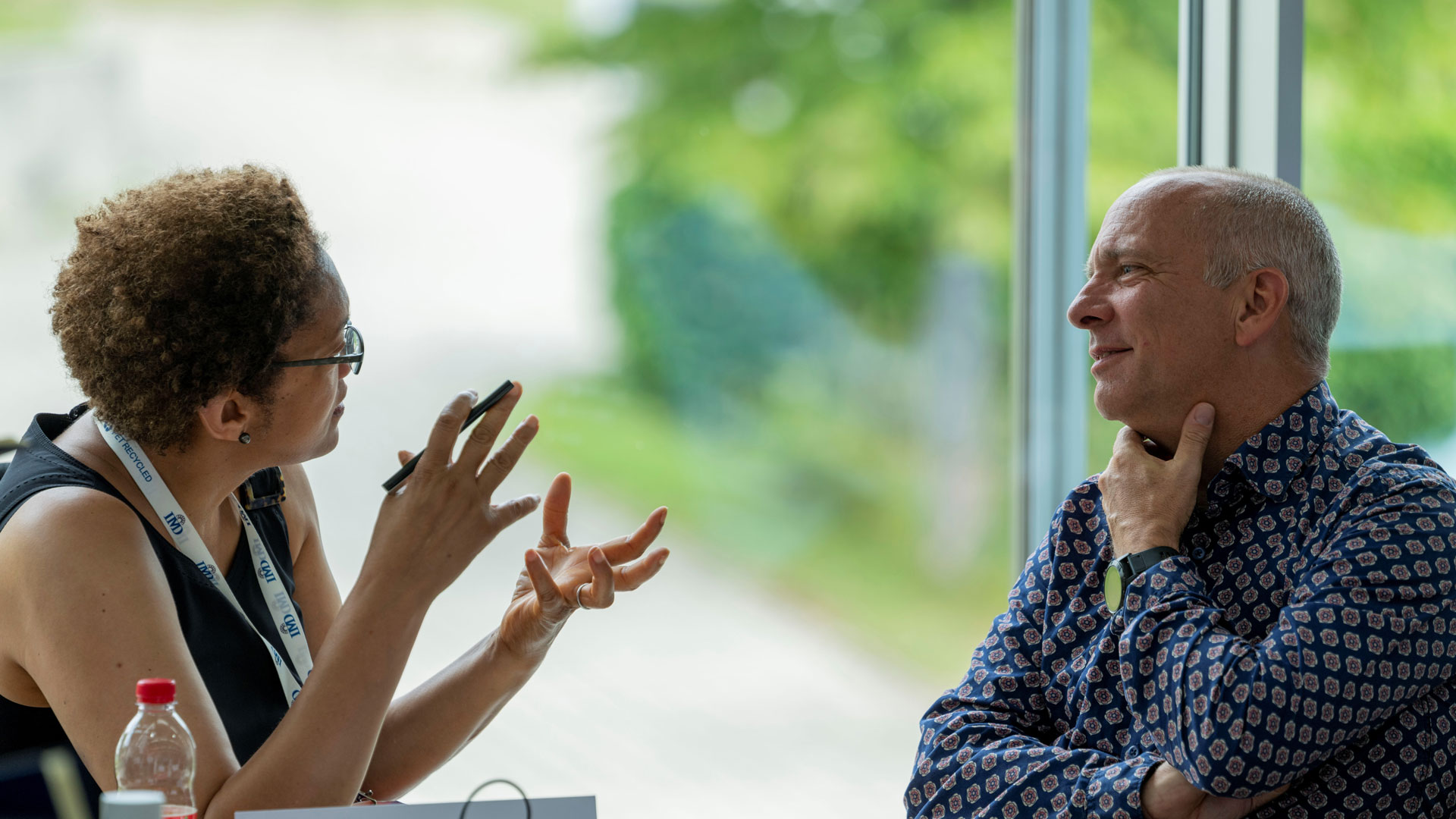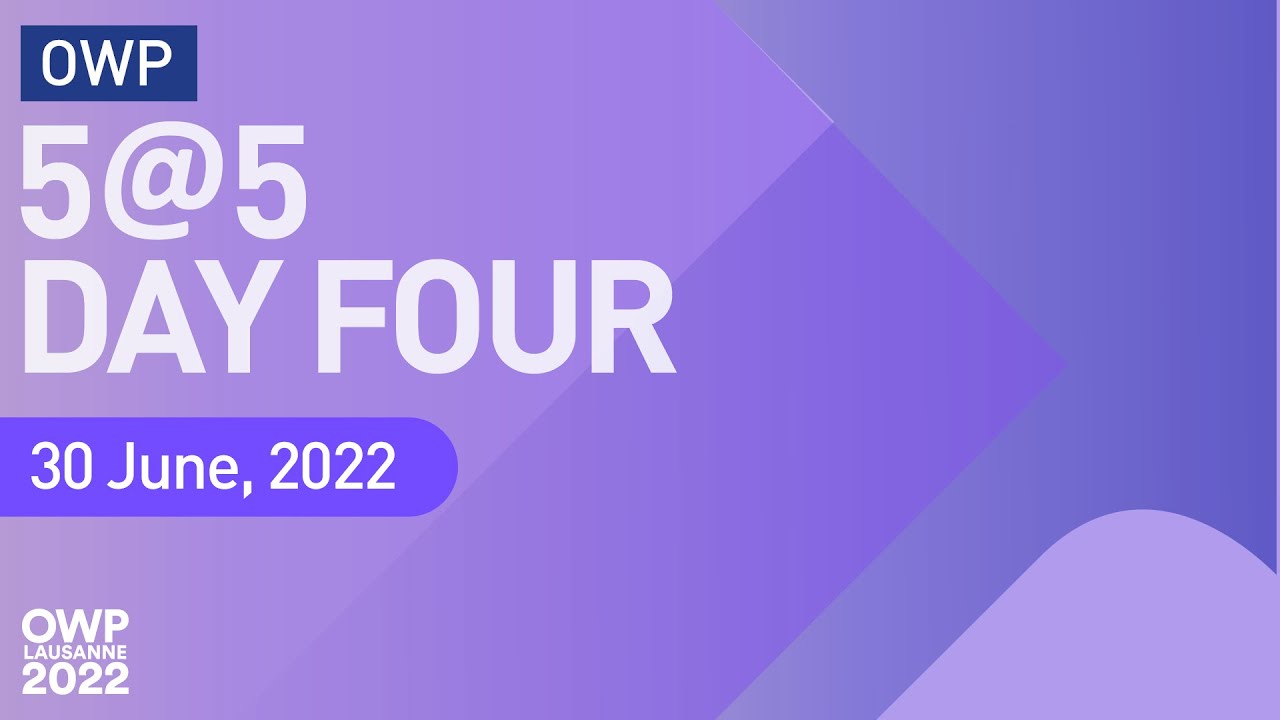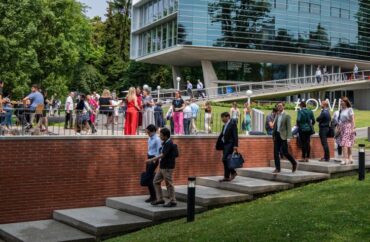
Are you on the menu or sitting at the table?
Faced with regulatory challenges? Looking for a way to boost your new product? Organizations should think about how to engage with the non-market environment, including policymakers, NGOs, and the media, to proactively shape it to benefit their corporate goals, Professor of Strategy and Political Economy David Bach told OWP participants.
“In politics, if you are not at the table, you are on the menu,” he said.
He cited the example of carmaker Toyota joining forces with rival Honda to lobby the Californian state government to allow hybrid vehicles to use carpool lanes. They also proposed putting a limit on vehicle size, locking out competitors who produced hybrid SUVs.
“They used this innovation to inject themselves into a policy debate to reduce emissions,” Bach said. “A non-market strategy boosts a market strategy.”
Handling tough DE&I moments
To unlock the power of diversity, leaders must tackle the invisible micro-aggressions in the workplace that make people feel excluded, such as talking over someone in a meeting or using patronising language, according to Professor of Leadership and Organizational Behavior Alyson Meister.
“You want leadership that can bridge difference and get the best out of diversity. We cannot realize the benefits of diversity without inclusion – feeling respected, like you belong, like your voice is heard,” Meister told OWP participants.
“Our brains are set up to protect the people that are part of our tribe. As soon as somebody becomes part of our in-group, we become much more likely, unconsciously, to help them – we are tribal people,” she said.
Micro-exclusions, including micro-assaults, micro-insults, and micro-invalidations, she explained, “communicate: you are not one of us, you don’t belong here, or you are not credible.”
Balance your leadership instincts
The modern business world is making us more reliant on our instincts, tendencies, and experiences, said Nik Kinley, Director at YSC, and Professor Shlomo Ben-Hur in their session, “Leadership OS Rewriting the Code – Building Trust in a Changing World”.
These leadership instincts, assumptions and biases can be both powerful and dangerous.
“If you are creating an Operating System informed by all these assumptions and instincts about what an average person is and can do, are you really going to get the best out of them?” asked Kinley.
By treating team members differently and motivating them, you are more likely to extract higher performance, they added.
Building networks for future challenges
Alongside the latest business insights, OWP also offers participants the unique opportunity to interact and share experiences with executives from diverse industries, cultures, and geographies –expanding their professional networks and sparking potentially powerful future collaborations.
“Networking here at OWP is about A, B, C, D: It’s active, brought, connecting, and dynamic,” said Katharina Lange, Affiliate Professor of Leadership and co-director of the OWP program. “You always build your networks before you need them. Working in ecosystems requires a broad network, a connected network that is integrated in your life.”




